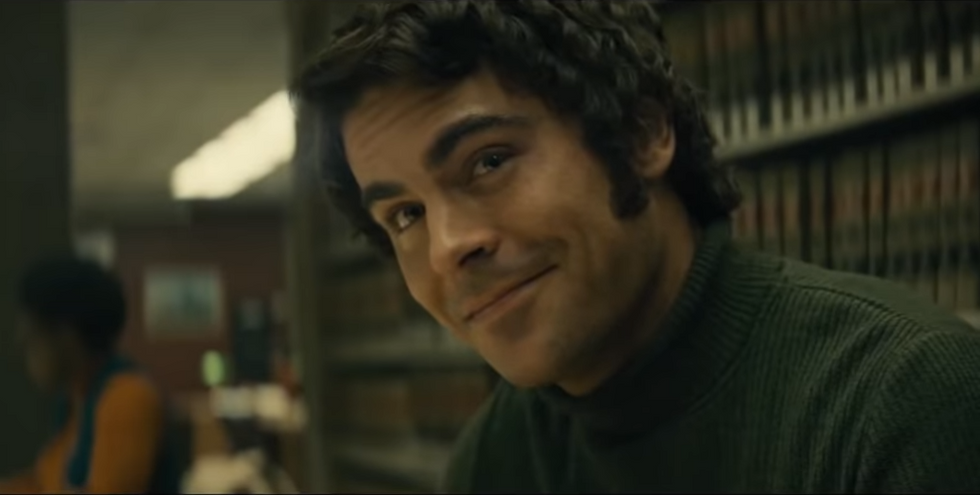Thirty years after his execution, the media took advantage of the hype that the murderer eternally excites in "Extremely Wicked, Shockingly Evil and Vile," Directed by Joe Berlinger as well as "Confessions of a Killer: The Ted Bundy Tapes," a documentary series produced by Netflix, with word that another documentary is soon to come.
Ted Bundy reached infamy because the likes of his crimes had never been seen before in the history of the United States. In the number of slayings, the ineptitude of law enforcement at the time, appearance and demeanor of the man himself and the fact that the public had not seen crimes of this nature before have afforded him more attention and notoriety than any serial killer ever before.
The historical significance of the case is undeniable, which explains why there is so much curiosity even now over the killer.
However, while Netflix served this purpose flawlessly, the movie way oversteps boundaries.
Once the trailer was released, social media immediately began taking sides. On the one hand, many believed that the movie went way too far in romanticizing one of the nation's most heinous killers. However, others argued that the film merely enhanced and modernized the natural charm that was obvious to those who followed the case when sh*t first hit the fan.
It should be noted that I have not seen the movie, but to be frank, the trailer was enough to make me believe that no one should.
Firstly, Bundy is portrayed by teenage heartthrob Zac Efron. As someone exclusively attracted to women, even I want some fries with that shake (to quote the lovely Pam Beesly). While it is no secret that Bundy himself was one of the most charming, approachable and attractive killers the public had ever seen, choosing the likes of Efton to play the role immediately taps into the underlying attraction that inexplicably gripped the public when he was reported upon.
In fact, the attraction was so strong that Bundy created an entire family—not to mention an avid fan base—from behind bars before his execution; a fact the producers no doubt took advantage of because the trailer almost makes it look like Bundy's first girlfriend, Diane Edwards, is a ride-or-die who was willing to help spring him from prison (not like he needed it, escaping custody two times before staying put).
Actually, Diane was one of the first people to bring Bundy to the attention of police when she found weapons in his car and heard they were looking for someone who went by "Ted."
His attraction was not even all they're making it out to be!
The curiosity about his appearance was not because he was exceedingly attractive, but because they had not yet encountered someone who looked so utterly normal, which totally shattered the assumption that serial killers were weirdos on the edge of society who could be spotted from a mile away.
Capitalizing on this element of the man is no doubt clever in terms of selling tickets. However, in a movie concerning someone who raped, murdered and mutilated possibly over 30 people, I can't imagine how the surviving victims and the families of the victims felt when discovering the appointment. Regardless of whether or not Efron can capture the charisma the convict harbored is irrelevant—this casting was nothing short of significant in setting up how the movie intended to portray Bundy.
The producers of "Extremely Evil" contributed to this tone with other stylistic elements that would initially go unnoticed.
The music, too, sets up Bundy to be a bad boy running from the law, similar to what you'd find in an action movie about spies or superheroes. Again, this depiction grossly undermines the horror of his crimes and the pain his victims endured. After all, they were certainly wicked, evil and vile—not the athletic deviancy of a quirky outsider.
While the movie turns the whole ordeal into a joking, catch-me-if-you-can parody, Netflix succeeds in highlighting the parts of the case that are significant. Atrocities such as these should only be met with a horrified curiosity and nothing more. Netflix achieved just that with the image filters that were used, the background music that was chosen and the documentary style of the episodes.
Rightfully so, Netflix allows viewers to get too close for comfort with hard facts about the aspects of the case, real-life accounts from people who handled it and interacted with Bundy as well as a comprehensive look at how the media and public reacted to the news, which is what made it such a landmark in American history.
The only stylistic skews that can be found were possible to up the fear-factor. Indeed, all accounts can attest to its creepiness, giving many (including myself) graphic nightmares and prompting Netflix to release a statement saying viewers should not watch it alone.
Looking back at a person who practiced sadism, torture and necrophilia should be handled no differently. Anything else is an insult to the memory of Bundy's victims and inaccurately depicts the effect he had on a nation, for he redefined safety in America and caused millions to sleep a little less soundly at night, not helped them get off before bed.









































